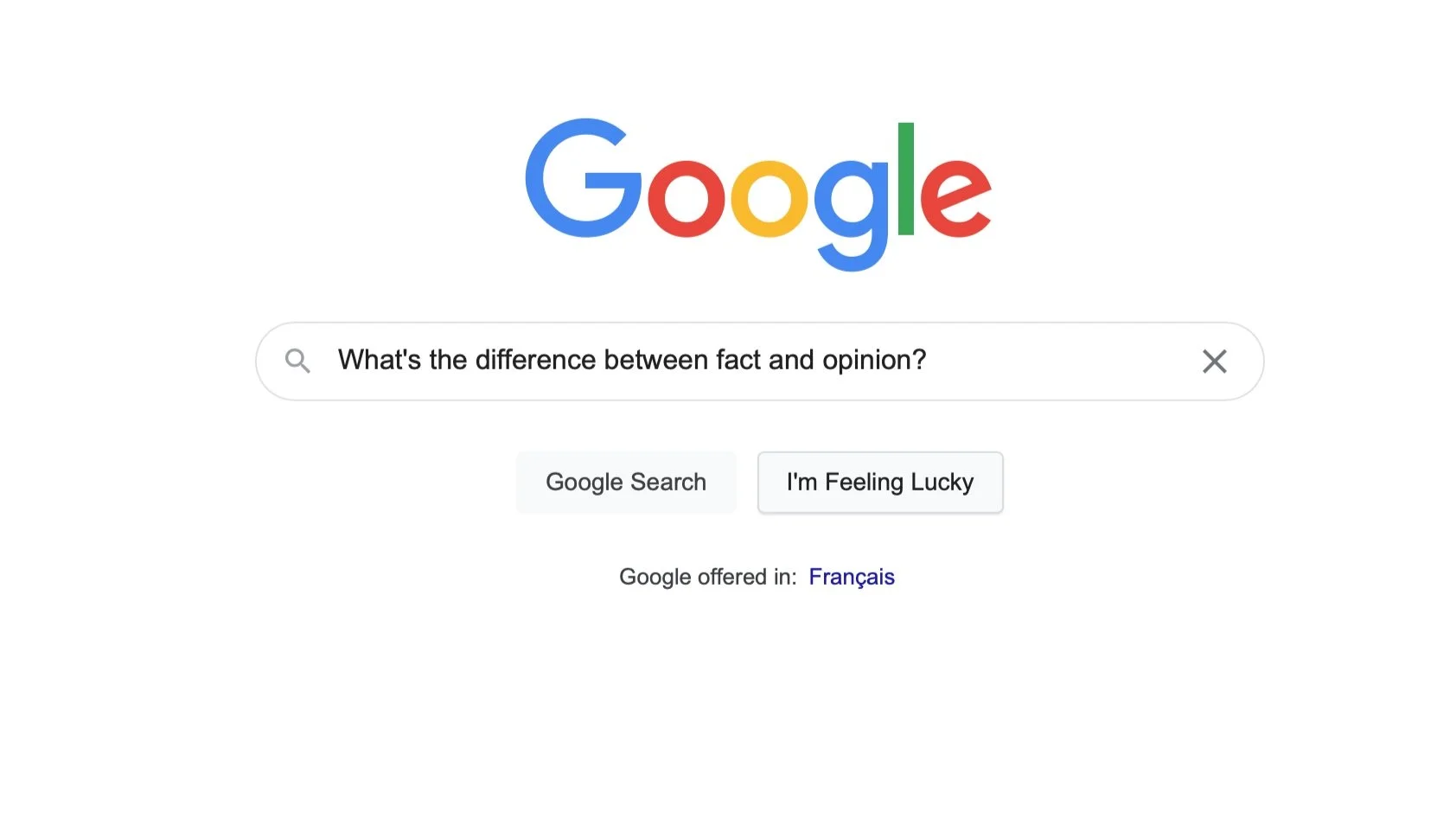The Basics: Fact vs. Opinion
The ability to determine the difference between fact and opinion is a fundamental news literacy skill. Confusion between the two fuels the spread of misinformation and contaminates media comprehension. A media literate population is essential in the preservation of healthy democracy, and we all need to read a little closer into the information we receive.
You may have learned this before, maybe you did it in Socials or English, maybe a Science teacher talked about it once, but trust me, media literacy is a skill everyone needs, so go through this article and arm yourself with the tools to confidently go about media consumption in any format.
The Basics: What are Fact & Opinion?
A fact is a provable piece of information supported by evidence. Canada is the second-largest country in the world. Eric Hamber was the 15th Lieutenant Governor of British Columbia. This website was made with Squarespace. Those are all statements that can be verified. They are facts.
An opinion on the other hand is a statement with which you can choose to agree or disagree. It is a perspective. You cannot prove an opinion to be true. Pierre Trudeau was the greatest Prime Minister. Apple is better than Samsung. Instagram is superior to Snapchat. Those are all statements that you cannot prove, but you can use facts to support your claim and convince others to agree (but remember, agreeing with an opinion does not make it true, and certainly does not make it a fact!).
Take this statement: “Justin Trudeau was born in Canada”. Is that fact? Or opinion? Can we prove that Justin Trudeau was born in Canada, or is it something we can have a different perspective on? Place of Birth is something one can prove, using records (among other things) as evidence. Therefore, it is a fact that Justin Trudeau was indeed born in Canada, as it can be proven.
Conversely, the statement "Justin Trudeau is the best Prime Minister", is not a fact. Why? Because if we refer back to the definition of a fact, we recognize that for something to be classified as factual, it must be verifiable. There is no way to prove anyone is the best Prime Minister. Prime Ministers can be ranked according to a methodology, they can be praised or condemned for their actions, but they cannot be given a universal descriptor such as "best", because those terms are reliant upon what somebody thinks. Facts are reliant upon objective evidence. Opinions are reliant on subjective thought (which may be based on facts). Therefore, we know this statement to be an opinion, because there is no way to prove with evidence Justin Trudeau is the best Prime Minister.
Fact and Opinion in News Media
News media often makes a point of denoting factual statements in the form of designating news reports, and opinion articles.
In both print and online media, it is standard practice to label opinion content as such, so readers are clear on what they're looking at. For example, an article titled "The VSB Needs to Lower International Tuition to Attract Foreign Students" would be tagged legibly with "OPINION". Sometimes news media use terms such as "commentary" or other similar language to indicate opinionated content.
However, with the increasing abundance of news consumed from social media, the distinction between fact and opinion has become less obvious to users, in the observation of The Nest's Poynter Institute-accredited student journalists. Tags denoting fact from opinion are significantly less common than in print. While it may be convenient to get information off of social media, there is no room to drop your guard when interacting with news content, and we must be aware of the media we consume.
Oftentimes, the platform we use to inform ourselves with news is one of the hardest platforms to judge fact vs. opinion, and the algorithms that filter and aggregate content don't necessarily help with that either. A well-known MIT study found that fake news, usually crafted with opinionated content, spreads six times faster than real, accurate news.
Why it Matters:
News is information. Information is powerful, powerful in that everything we do, everywhere we go, our past, present, and future, is and are all shaped and designed using the information we have access to and consume.
The ability to distinguish is fundamentally important beyond current affairs followers. Your ability to comprehend information and its role in the continuance of a healthy and sustainable democracy cannot be overstated.
So next you find yourself scrolling through Instagram, watching a YouTube video, reading a magazine or newspaper, stop and ask yourself "is this fact or opinion?". It's a question you should be able to answer, because democracy depends on it.

